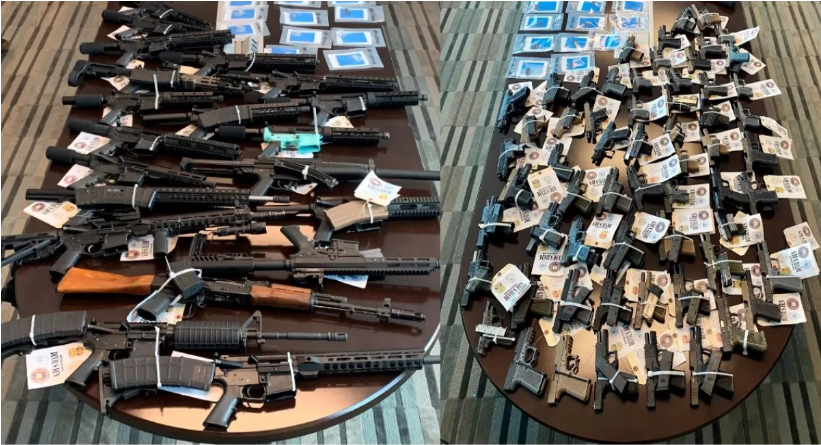Join CRA TODAY!

There is no “US” Without You!
Thank you for visiting us here at the online headquarters for THE CALIFORNIA REPUBLICAN ASSEMBLY.
If you find value in the work we are doing to help fight for conservative values here in the Golden State, PLEASE BECOME A MEMBER TODAY!
(LA TIMES) – One of the strangest pieces of legislation ever enacted in California took effect Jan. 1, giving state residents and visitors the same power to threaten the gun industry that Texans now wield over abortion providers.
Even backers of the law say this isn’t an entirely good thing.
SB 1327 authorizes anyone other than state or local government officials to sue people who violate the state’s laws against the manufacture, distribution or sale of assault weapons, ghost guns and other banned firearms. Lawsuits could also be brought against gun dealers who violate the state’s law against selling or transferring weapons (besides hunting rifles) to anyone under 21 years old.
Supporters say this “private right of action” will make the state’s tough gun-control measures more effective by enlisting an army of grass-roots enforcers. And by barring state and local governments from filing SB 1327 lawsuits, they hope to make the law harder to challenge in court.
The law also exists to make a point, however.
Gov. Gavin Newsom sought the measure as a response to Texas’ SB 8, which empowers “any person” to sue those who perform or knowingly aid an abortion in that state after the fetus shows signs of cardiac activity. When the Supreme Court refused to throw out SB 8, Newsom (who sharply criticized it) called for California to use it as a model for a novel approach to gun control.
Some gun-rights advocates have called California’s law “performative legislation,” but Craig Peters, a partner at Altair Law in San Francisco and past president of the Consumer Attorneys of California, said SB 1327 “points out the absurdity” of Texas’ approach and the bad precedent it set. With the new law, he said, California is showing the rest of the country — and the Supreme Court — how the controversial methods in SB 8 can be applied to other rights.
SB 1327 is already scoring some of the legal points its supporters desired.
On Dec. 19, U.S. District Judge Roger Benitez in San Diego nixed one part of SB 1327 on constitutional grounds: the “fee-shifting” provision that would have saddled gun-industry litigants with all or part of the court costs from any suit challenging the state’s gun controls, even if they prevailed in court. The state attorney general’s office had refused to defend it, having argued that the Texas fee-shifting provision on which it was based was unconstitutional.

